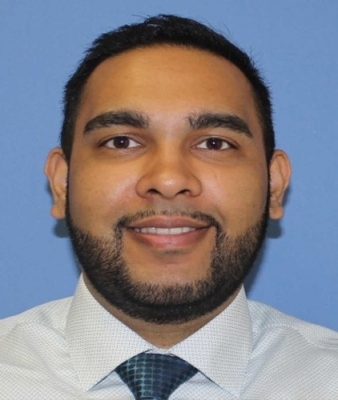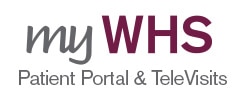
Dr. Jagmohit Ranwan
Dr. Jagmohit Ranwan is currently a second year Family Medicine resident at the Washington Health System Family Medicine Program. He was born in India and moved to Toronto, Ontario, Canada in 2000 at the age of 10. Attended college at York University and finished with a Honors Major in Biology in 2013. For post-graduate training, he decided to pursue medicine at Saba University in Saba, Caribbean and successfully completed his studies in 2018 with a Medical degree. He then joined residency here in Southwestern Pennsylvania at WHS. He has had the opportunity to travel to multiple states during her clinical rotations while in medical school. In his spare time, Dr. Ranwan loves to read, watch movies, play basketball and watch sports. He also enjoys spending time with his significant other and going downtown Pittsburgh, if he isn’t travelling back to Toronto.
American Heart Month
February is the month for Heart awareness. There are many components and factors we always look for in terms of heart disease and to avoid heart attacks. Cholesterol monitoring is key to preventing heart disease and if someone already has heart disease it is the means to prevent further damage.
Cholesterol
Cholesterol is a fatty, waxy substance that is present in everyone’s bodies. It is part of dietary sources and is also produced by the liver. It is a major component of all living organisms, as it is required as part of cell membranes and used to make various hormones that we need to live. It is mainly transported through the body via the blood on cholesterol carriers, called lipoproteins. There are two major types of lipoproteins that we look for, while others exist: High-density lipoprotein (HDL) “good” cholesterol and Low-density lipoprotein (LDL) “bad” cholesterol. Good and bad in this case are not necessarily true as we need both types to live, however it has more to do with if you too much of the LDL that is essentially “bad”, while too much of HDL is essentially “good”.
When there is excessive LDL cholesterol it can be deposited into the walls of arteries throughout the body. This can lead to heart attacks, strokes, chest pain (angina), and peripheral artery disease which are all end point diseases for underlying process of atherosclerosis. This process is termed under the umbrella term of ASCVD.
Some of us are more prone to developing atherosclerosis than other, as many as 1 in 212 U.S. adults may have a genetic condition called familial hypercholesterolemia (FH), which is inherited and causes liver to produce to have issues with removing the excessive LDL cholesterol leading to very high LDL levels in younger age. This in tern leads to earlier age ASCVD (heart attack/stroke). Recommended treatment for FH includes healthy lifestyle choices and statin therapy, started early and continued with close follow-up to reach treatment goals. It has been seen that about 90% of people with FH have not been properly diagnosed and it leads to approximately 5% of all annual myocardial infarctions in Americans under age 60.
We do have ways to treat abnormal cholesterol, and the most effective ways are medications such as Statins. They lower LDL cholesterol by reducing the overall liver production of cholesterol. They also improve the liver’s ability to remove LDL cholesterol that is already in the blood. However, data from 2013-2014 indicates that only about 50% of US adults who might benefit from statin take the medication. Eligible adults over age 65 are more likely (63.5%) than adults ages 35–64 (48.1%) to use statins.
There are about 39.1 million people who are at high risk for an ASCVD event (heart attack) but are not taking a statin and can reduce their risk of a heart attack or stroke by up to half if therapy were taken regularly. Potential side effects include, statins may cause myopathy, which is reversible muscle damage often associated with the release of enzymes into the blood. Approximately 10% to 25% of patients treated in clinical practice report muscle symptoms (aches, weakness) after initiating statins, but multiple studies have found no differences in the frequency of muscle symptoms between participants on a statin and those on a placebo. The discrepancy between observational clinical experience and randomized trials is likely due to patients’ and clinicians’ inappropriately attributing muscle problems to statins in clinical practice.
Cholesterol is a big factor when it comes to improving your cardiovascular health. Please remember to bring it up to your family doctor and ask them about your cholesterol. If you are already taking medication and are concerned with any side effects of the medication please again speak with your family doctor to talk about the risks and benefits of taking the medication, to formulate a good, sensible plan for the future. There are other medications that are also for elevated cholesterol that your family doctor may be able to recommend in the right cases as well. The Washington Health System has a dedicated cardiology floor and we work closely with our cardiologists on a daily basis. Always practice healthy lifestyle and if you ever have questions, please always consult your family physician to help you be as healthy and as aware as possible.


